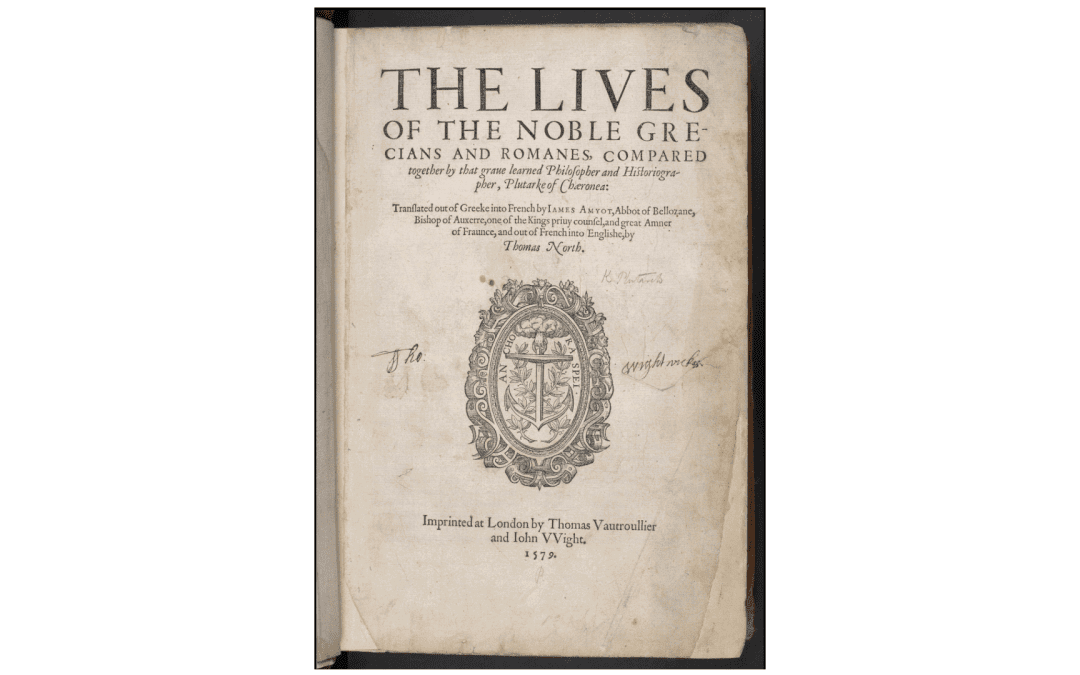When I wrote my post on renaissance writers, I failed to mention Sir Thomas North. I realised my error when I read, or heard, some quotations of Plutarch. In 1557 Sir Thomas North wrote the first translation of Plutarch’s Parallel Lives in English. Shakespeare based his plays Anthony and Cleopatra, Julius Caesar, Timon of Athens, and Coriolanus on North’s translation. Shakespeare used sections of North’s prose in his blank verse with only minor modification.
Plutarch was a Greek philosopher, historian, essayist, and priest. He lived from 46 CE to 119 CE, and at some point became a Roman citizen.
We can all benefit from Plutarch’s wisdom. I shall quote just a few, you can read more here.
‘An imbalance between rich and poor is the oldest and most fatal ailment of all republics.’
‘The mind is not a vessel to be filed but a fire to be kindled.’
‘Instead of using medicine, better fast today.’
‘I don’t need a friend who changes when I change and nods when I nod; my shadow does that much better.’
‘There are two sentences inscribed upon the Ancient oracle… “Know thyself” and “Nothing too much”; and upon these all other precepts depend.’
It is possible that Sir Anthony Standen met Sir Thomas North. North fought in the Low Countries against the Spanish while Standen was there. He also fought in Ireland in 1597, the year that Standen accompanied Essex there. He was a member of Lincolns Inn, and would probably have known Francis Bacon. Standen knew both Bacon brothers well.
I shall try not to be too hard on myself. When I composed my post on writers of Sir Anthony Standen’s era, I was looking for writers rather than translators. If his work was good enough for Shakespeare to steal, that’s good enough for me. Whose words were they anyway? North’s or Plutarch’s.

